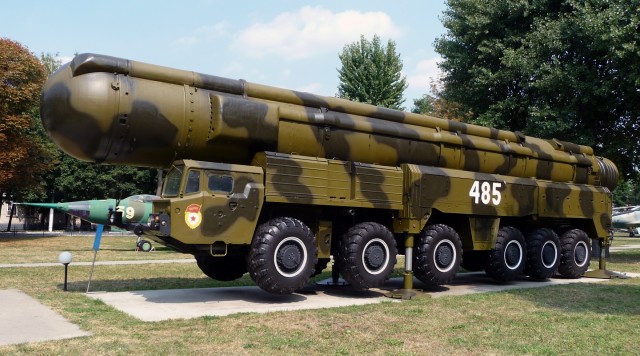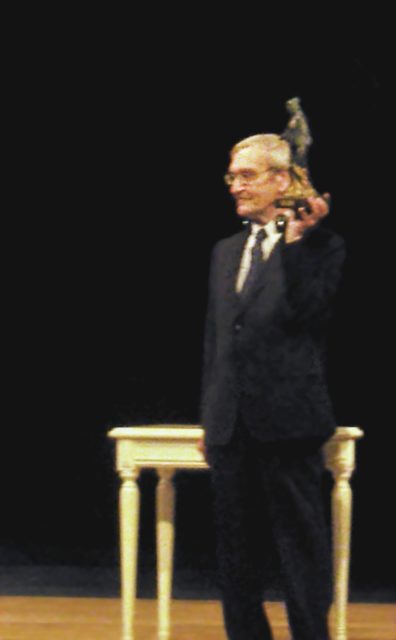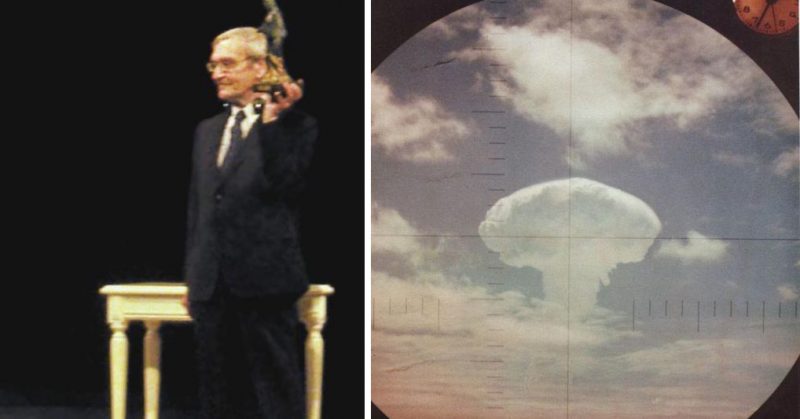The Man Who Saved the World from Nuclear Destruction
Remember, remember the 26th of September,
when the unknown man becomes a defender.
That could be the very last day of the earth,
yet he saved us from doom and dearth.
Prologue
The 26th of September of 1983 could have been the last day for humanity. Stanislav Petrov was an officer on duty during that day; his job was to oversee the new system Oko, a nuclear early-warning system, which wasn’t the most exciting thing to do. This day changed his life completely, and at the same time, did not change the world, thankfully for humanity.
But first, we have to know all the circumstances at that time. The Cold War was a relatively bloodless period, especially if we bear in mind that the two biggest powers on the planet were confronting each other. Relatively bloodless, though this lull was it could have been transformed into a fearsome storm, at any moment, especially on the 26th of September, ’83.
The most dangerous moments of the Cold War were in the first half of the 80s. Because this was a weird, new kind of war, it was unexpected in every way. On the Soviet side, uncertainty escalated to the highest degree possible, because of a few actions they took previously, such as the invasion of Afghanistan in December ’79. In 1980, the West boycotted the Olympic Games in Moscow. The USSR started the mass production of SS-20, ballistic missiles of intermediate range at this time.
The most tragic event occurred in September 1983 when Russian SU-15 interceptor shot down a South Korean plane, KAL 007 and all the passengers and crew died, including many American citizens and the U.S. Congressman, Larry McDonald. In total, there were 269 victims. USSR knew very well the implications of their actions and feared American retaliation. Also, preparations for huge scale NATO military maneuvers in the Western Europe, called Able Archer, looked like setting the scene for war.
But that’s not all; the U.S. stationed their ballistic missile system Pershing II on the European continent, which was an obvious threat to the USSR government. In response, the Soviets readied their nuclear forces and placed all air units in East Germany and Poland on alert. The danger did not cease until November 11th when Able Archer finally ended.
Those factors were considered in the Soviet Union as suspicious, and the realistic form of Able Archer made some in Moscow believe that it was a real preparation for war by the NATO countries. The Russians became even more nervous. Powerful people who were in possession of nuclear weapons are at their most dangerous when they are under pressure or feel anxious.

The Day
Four minutes after midnight the siren howled. The lieutenant took out a cigarette and lit it. The monitors highlighted the information that a ballistic missile was launched from U.S. soil and was heading in the direction of the USSR. In this ominous chain of events, World War III was likely to have started. Five thousand American and Soviet intercontinental ballistic missiles were ready to launch at a moments notice.
All that was required was to push the red button. The USA and half of Europe would be annihilated. Every creature on earth would feel the effect of this incident. But, one cog “malfunctioned,” and that part of the machine was Stanislav Petrov himself!
At that time, the threat of Mutually Assured Destruction was real. Just one mistake would bring destruction to the world.
The nature of the alert was clear, but Petrov had some doubts. What made him feel suspicious, was that 28 out of 29 security levels that were showing the warning, were too clear and too strong. This made him think there was something wrong with the system.
Petrov disobeyed the protocols, did not follow the guidelines, and kept his cool and started to analyze the situation. “No one is starting the global conflict with a single missile.” Petrov was also the only officer in his team that received a civilian education and could think on his own initiative.
His statement later said that all of his colleagues that were professional soldiers were taught to “give and obey orders.” Petrov believes that if someone else had been on this particular shift instead of him, the alarm would have been raised.
![The Frigate Bird explosion seen through the periscope of USS Carbonero (SS-337) [Wikipedia ] Public Domain]](https://www.warhistoryonline.com/wp-content/uploads/sites/64/2016/08/2.768px-FrigateBird_nuke.pg_-546x640.jpg)
The right thing
According to the guidelines, he should immediately inform the Kremlin about an attack, after which, probably, Yuri Andropov, the General Secretary of Soviet Union, would order to strike back with the whole nuclear arsenal.
Petrov and his crew started to check the system again, but no errors were found. The system (Oko) clearly showed an act of aggression, but Petrov believed that it was wrong.
After a few minutes, another alarm went off, because Oko recognized that a few more missiles were launched towards USSR. After that, the tension reached an apogee. Petrov made a decision on his own to not to notify upper ranks.
He assumed it was an error, but “wasn’t 100% sure, not even close to 100%.” Yet he stuck to his logic and reasoning. The fate of the world was in his very hands. The missiles would reach his motherland in 30 minutes; ground radars were able to see the danger after 23 minutes, so that would leave only seven minutes for a reaction.
“Idiots who would start such war with only five missiles don’t exist” – he thought. And he continued to calm his crew and did nothing.
There are many stories about heroes who accomplished some heroic acts. In this case, the valiant action was to remain calm and not to do the “right thing”.
After a few more tense minutes, it turned out the missiles were never launched, and the system had malfunctioned.
Bruce Blair, an expert on Cold War nuclear strategies, says about the relationship between the United States and the Soviet Union at that time:
“The situation had deteriorated to the point where the Soviet Union as a system—not just the Kremlin, not just Soviet leader Yuri Andropov, not just the KGB—but as a system, was geared to expect an attack and to retaliate very quickly to it. It was on hair-trigger alert. It was very nervous and prone to mistakes and accidents.
The false alarm that happened on Petrov’s watch could not have come at a more dangerous, or intense phase in U.S.–Soviet relations.”
![The Titan II Intercontinental ballistic missile (ICBM) carried a 9 Mt W53 warhead, one of the most powerful nuclear weapons fielded by the United States during the Cold War [Wikipedia / Public Domain]](https://www.warhistoryonline.com/wp-content/uploads/sites/64/2016/08/MK6_TITAN_II-497x640.jpg)
Aftermath
So, what really happened? Why did Oko report a missile attack, despite the fact that the reality was different? After a few months of investigation, the reason was revealed. The fault was caused by a rare alignment of sunlight on high-altitude clouds in relation to the satellites’ Molniya orbit. The official report on the incident showed that Petrov was right.

However, our hero was neither praised nor punished. Praise would concede that the Russian system Oko, the very system that was the base defense against nuclear attack, had a massive defect. The USSR disliked admitting their mistakes but on the other hand, punishing Petrov would be too cruel, even for the harsh Soviet regime.
Ignoring the bravery of Petrov could be regarded as a form of punishment, but the truth about this event was only revealed in the late 90s.
Stanislav Petrov is 77 years old now; he is still smoking and is living in the city of Franzino, near Moscow. As he said in 2006, “I just fulfilled my duties. I’m glad that my deed gained such big recognition.”
On his World Citizen Award, there is the engraved sentence “The Man Who Prevented Nuclear War”.
 Photo Credit"
title="
Photo Credit"
title="